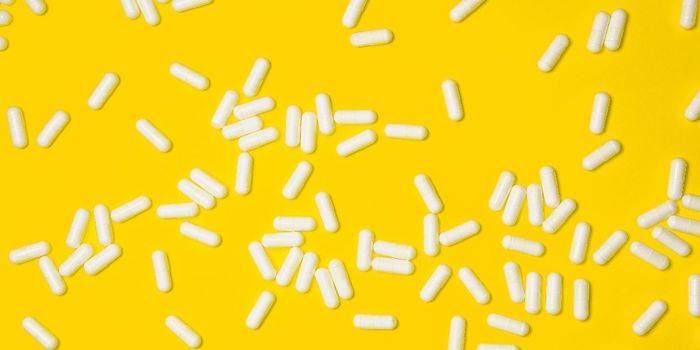This Feel-Good Hormone is Low in Anorexia and Obesity
Eating disorders are a problem with some women and teens. While many might think that having anorexia or bulimia is just being a moody teenager, the problem is very real.
New research shows that a chemical cause for anorexia might also exist in women who are obese. Researchers from the University of Illinois at Chicago College of Medicine have found that low levels of the hormone allopregnanolone, or "allo" for short, are present in women who are overweight and women who are anorexic. Previous neuroscience research has shown that allo is also low in patients who have depression or anxiety, both of which can be co-morbid conditions in anorexia and bulimia.
Chemically, it's a little complicated. Allo is a metabolite of progesterone, which is one of two critical female hormones (the other is estrogen.) It binds to GABA receptors in the brain which is relevant because those same receptors are what many anti-anxiety medications are also aimed at. Allo is mostly a "signal booster" which, when properly regulated, can produce a good feeling. This is important to understand because more than half of women who are diagnosed with anorexia nervosa also have anxiety or depression (and sometimes both) and 43% of obese women also have depression. Sufferers of PTSD have also been shown to have low levels of allo.
Graziano Pinna, associate professor of psychiatry and a co-author on the paper stated, "We are beginning to see more and more evidence that low allo levels are tightly linked to depression, anxiety, post-traumatic stress disorder and other mood disorders. To see that women with anorexia nervosa and obesity have low levels adds to the picture that the role of allo is under-recognized in mood disorders."
The study was conducted with twelve women who had anorexia and whose menstrual cycles had stopped as a result (amenorrhea). Added to that were twelve women with healthy body weight and BMI and twelve women who were obese. The average age of the volunteers for the study was 26, and none of the participants had been diagnosed with depression or were taking psychiatric medications.
Together with questionnaires, the study group underwent bloodwork to assess the levels of allopregnanolone. Professor Pinna's lab at the University of Chicago is one of only three labs in the United States to use gas chromatography and mass spectrometry to measure levels of hormones as well as their metabolites.
The results showed both groups of women, those with anorexia as well as those who were obese, had levels of allo that were a full 50% lower than the women who were of average weight and BMI. Answers to the questionnaires also lined up with the findings, showing that those who had the lowest levels of allo also reported moderate to severe depression symptoms. Progesterone levels were low across all of the women, but researchers felt that some of those levels were because the women had ceased to have periods and other levels could be pinpointed to the time in the women's cycles that the blood was drawn.
Dr. Karen Miller, a colleague of Dr. Pinna and a professor at Harvard Medical School co-authored the study and stated, "Depression is an incredibly prevalent problem, especially in women, and also particularly at the extremes of the weight spectrum. The hope is that a greater understanding of mechanisms contributing to these disorders — including abnormalities in the regulation of hormones and their neuroactive metabolites — may lead to new targeted therapies in the future." The video below has more information on the neuroscience that is involved in eating disorders, take a look
Sources University of Chicago, Neuropsychopharmacology, PsychCentral









